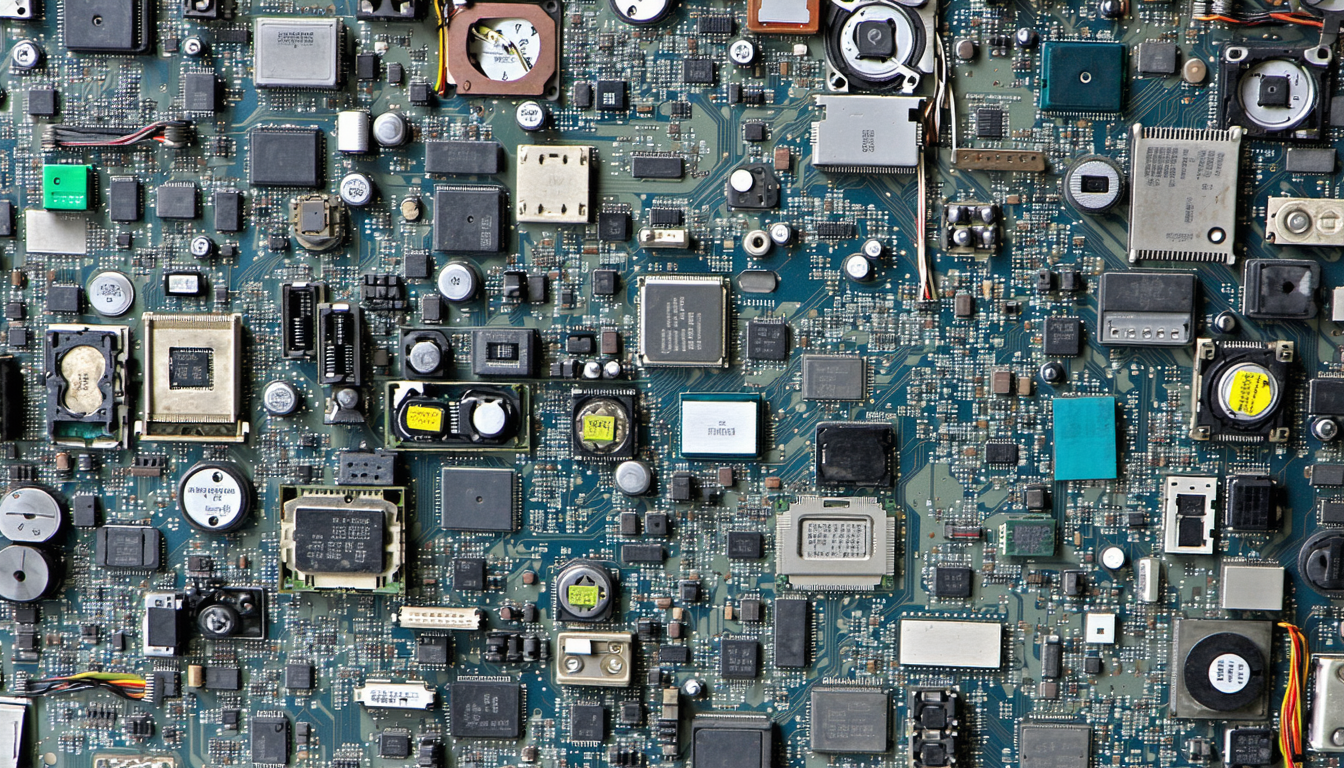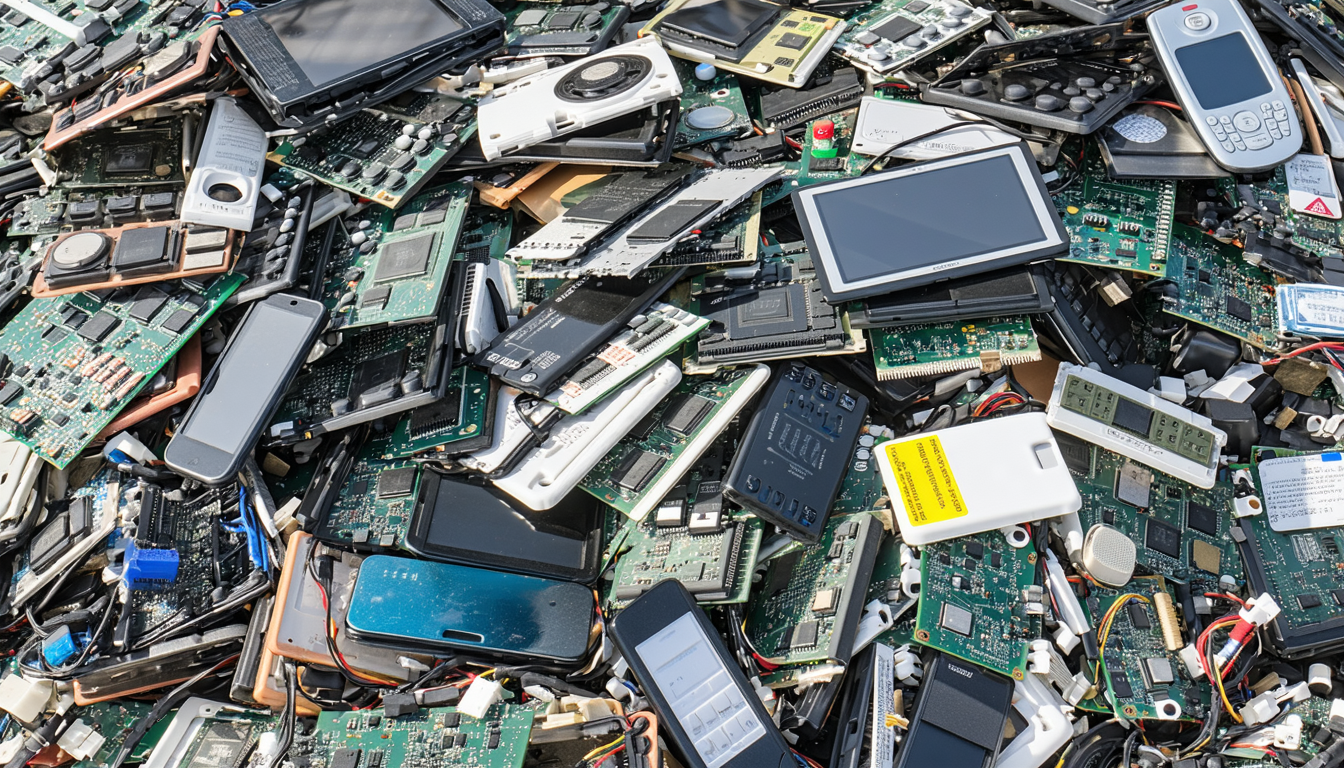Introduction
In an era where technology evolves at lightning speed, electronic waste, or e-waste, has become a significant environmental and economic concern. Many individuals and businesses are now seeking ways to purchase e-waste for recycling, refurbishing, or repurposing. This growing interest raises the question: where can I buy e-waste in the United States? This article explores the avenues available for acquiring e-waste, highlights key platforms and regulations, and discusses the broader implications of this emerging market. Stay tuned as we uncover the best sources and expert insights on navigating this unique industry.
Understanding the E-Waste Market in the U.S.
E-waste refers to discarded electronic devices such as smartphones, laptops, and appliances that are no longer in use. In the United States, over 6.9 million tons of e-waste were generated in 2019, according to the Environmental Protection Agency (EPA), with only about 15% being recycled. The demand for purchasing e-waste has surged as companies and individuals recognize its value for recovering precious metals like gold and silver or reusing components.
This market serves various stakeholders, including recycling firms, tech enthusiasts, and small businesses looking for affordable parts. However, buying e-waste is not as straightforward as purchasing other goods due to strict regulations surrounding its handling and disposal. Knowing where to source it legally and responsibly is crucial.
Where Can I Buy E-Waste? Top Sources to Explore
For those wondering, “where can I buy e-waste,” several legitimate options exist across the U.S. Here are some of the most accessible sources:
- Online Marketplaces: Platforms like eBay and Craigslist often list bulk e-waste from individuals or businesses. Buyers can find everything from old computers to broken appliances, though verifying the seller’s credibility is essential.
- E-Waste Recycling Companies: Firms like Sims Recycling Solutions and Electronic Recyclers International (ERI) sometimes sell processed or unprocessed e-waste to certified buyers. Contacting these companies directly can yield bulk deals.
- Local Electronics Retailers: Some retailers, such as Best Buy, offer take-back programs and may sell collected e-waste to interested parties under specific conditions.
- Government Auctions: Federal and state agencies occasionally auction off outdated electronics from public offices. Websites like GovDeals.com are a good starting point.
- IT Asset Recovery Services: Companies specializing in IT asset disposition often have surplus electronics available for purchase by businesses looking to repurpose hardware.
Each source comes with its own set of requirements, so buyers must ensure compliance with local and federal laws, including the Resource Conservation and Recovery Act (RCRA), which governs hazardous waste.
The Significance of Buying E-Waste Responsibly
Purchasing e-waste isn’t just about finding a bargain; it’s about contributing to a circular economy. By buying and recycling e-waste, individuals and companies help reduce landfill waste and conserve natural resources. According to Dr. Sarah Bennett, an environmental scientist at GreenTech Institute, “Responsible e-waste procurement can cut down raw material extraction by up to 30%, preserving ecosystems while meeting industrial needs.”
However, improper handling can lead to environmental hazards due to toxic substances like lead and mercury found in electronics. This makes it vital for buyers to partner with certified vendors who adhere to safety standards. The impact on stakeholders—ranging from recyclers to end consumers—underscores the need for transparency in this market.
Challenges and Future Outlook
While the e-waste market offers opportunities, it also presents challenges. One major issue is the lack of uniform regulations across states, which can confuse buyers about legal requirements. Additionally, distinguishing between usable and hazardous materials requires expertise, posing a barrier for newcomers.
Looking ahead, experts predict growth in this sector as awareness of sustainable practices increases. The EPA estimates that by 2030, e-waste recycling rates could double if supported by stronger policies. Balancing profitability with environmental responsibility will be key to shaping this industry’s future.
Conclusion
Navigating the question of “where can I buy e-waste” reveals a complex but promising landscape in the United States. From online platforms to recycling firms, numerous options exist for sourcing electronic waste responsibly. As this market grows, it holds potential for both economic gain and environmental benefits, provided buyers prioritize compliance and sustainability. By understanding available resources and regulations, anyone can contribute to reducing e-waste’s footprint while tapping into its hidden value.
Frequently Asked Questions (FAQ)
1. Is it legal to buy e-waste in the United States?
Yes, buying e-waste is legal if done through certified vendors or platforms while adhering to federal and state regulations like the RCRA. Always verify the source to avoid illegal transactions.
2. Why would someone want to buy e-waste?
People buy e-waste for recycling valuable materials, refurbishing devices for resale, or using components for repairs. It’s often a cost-effective way to access tech resources.
3. Are there risks associated with purchasing e-waste?
Yes, risks include exposure to toxic substances if not handled properly. Buyers should work with certified entities and follow safety guidelines to minimize health and environmental hazards.
4. How can I ensure I’m buying e-waste responsibly?
Research sellers, check for certifications like R2 or e-Stewards, and confirm compliance with local laws. Partnering with reputable recycling firms is often the safest approach.



